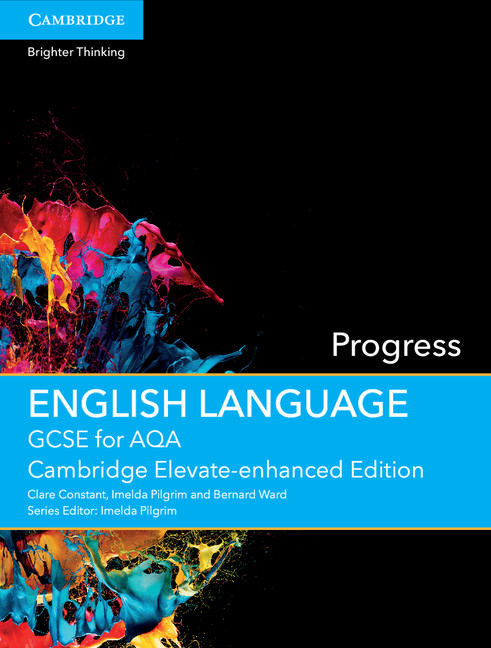Written for the AQA GCSE English Language specification for first teaching from 2015, this enhanced digital resource is designed for students targeting Grades 1 to 5, with extension activities to facilitate achievement beyond this. With progress at its heart, this differentiated resource covers a range of 19th-, 20th- and 21st-century texts and has SPaG support throughout. These GCSE English Language Digital Editions include bespoke video content. Available online and on tablet devices through the Cambridge Reader app.
Features
- A single one-year site licence for an unlimited number of teachers and students.
- The Digital Student Books are fully customisable and interactive, with extensive annotation and bookmarking tools making texts more accessible for students.
- ‘Assess to Progress’ on Digital edition provides expert marking support, progress tracking and reporting to save teachers time.
- The Digital Student Books include rich digital content created by English teachers with students’ needs in mind.
- The Digital Student Books allow teacher–student messaging, helping you connect with your class in a timely and practical way.
- Available online and on tablet devices through the Cambridge Reader app.
- Spelling, punctuation and grammar are fully integrated throughout the resource.
- Features high-quality 19th-, 20th- and 21st-century texts across a range of genres, specifically selected to help students prepare for challenging unseen texts.
- A spoken language section helps students develop their skills as speakers, presenters, listeners and responders.
- Free Digital Teacher’s Resources with each Digital Student Book allow for easy linking and cross reference, and provide comprehensive planning support with additional opportunities for differentiation and extension.
- Accessibility Information: The accessibility information of this publication is unknown.
Table of Contents
- Introduction
- READING: Unit 1. Identify and explain information
- Unit 2. Select, interpret and collate information
- Unit 3. Interpret and comment on meaning
- Unit 4. Examine how writers use language to influence readers
- Unit 5. Examine how writers create and use tone
- Unit 6. Explore how writers use language to describe
- Unit 7. Explore how writers order and organise texts
- Unit 8. Explore structure in fiction
- Unit 9. Write about structure
- Unit 10. Test your progress 1
- Unit 11. Understand viewpoint
- Unit 12. Examine similarities and differences in viewpoint
- Unit 13. Compare writers' viewpoints
- Unit 14. Judge for yourself
- Unit 15. Evaluate texts and support the points you make
- Unit 16. Test your progress 2
- Unit 17. Wider reading 1: Investigate story openings
- Unit 18. Wider reading 2: Reading sources from different genres
- SPOKEN LANGUAGE: Unit 19. Prepare and give a presentation
- WRITING: Unit 20. Write for purpose and audience
- Unit 21. Write effective sentences
- Unit 22. Use effective vocabulary
- Unit 23. Control your writing
- Unit 24. Create tone to influence your reader
- Unit 25. Make choices to organise and write
- Unit 26. Test your progress 3
- Unit 27. Describe effectively
- Unit 28. Tell a good story
- Unit 29. Make your point
- Unit 30. Craft your writing
- Unit 31. Spell accurately
- Unit 32. Test your progress 4
- PREPARING FOR YOUR EXAM: Set 1 practice Paper 1
- Practice Paper 1: Make progress
- Set 1 practice Paper 2
- Practice Paper 2: Make progress
- Set 2 practice Paper 1
- Set 2 practice Paper 2
- Glossary
- Acknowledgements
Advice on useful tools
Advice on useful tools, activities and timetabling from teachers experiencing school closures.
Cambridge GO
All our supporting resources have now moved to Cambridge GO – the new home for your Cambridge digital content.
Listen to our podcast
Listen to our podcast to discover teaching inspiration & advice from leading educational thinkers.

